Eminem’s Legal Battles: A Comprehensive Timeline of Lawsuits and Controversies
Updated and revised, May 2025 – Norma Harris, Contributing writer
Love him or loathe him, Eminem doesn’t just spit fire in the booth — he’s lit up courtrooms too. Marshall Mathers, better known as Slim Shady, has built a career on controversy, and his legal history reads like a courtroom mixtape: defamation suits, copyright clashes, family feuds, and big-brand beefs. Whether he’s being sued by his mom, sued Apple, or protecting the “Shady” brand with all the fury of a diss track, Em’s been entangled in lawsuits for decades.
In this deep dive, we break down Eminem’s top legal showdowns — from the bizarre to the billion-dollar. And yes, it’s updated for 2025, because the drama hasn’t stopped. So buckle up: here’s the ultimate legal playlist of Eminem’s courtroom bangers and bust-ups.
I. Early Legal Issues
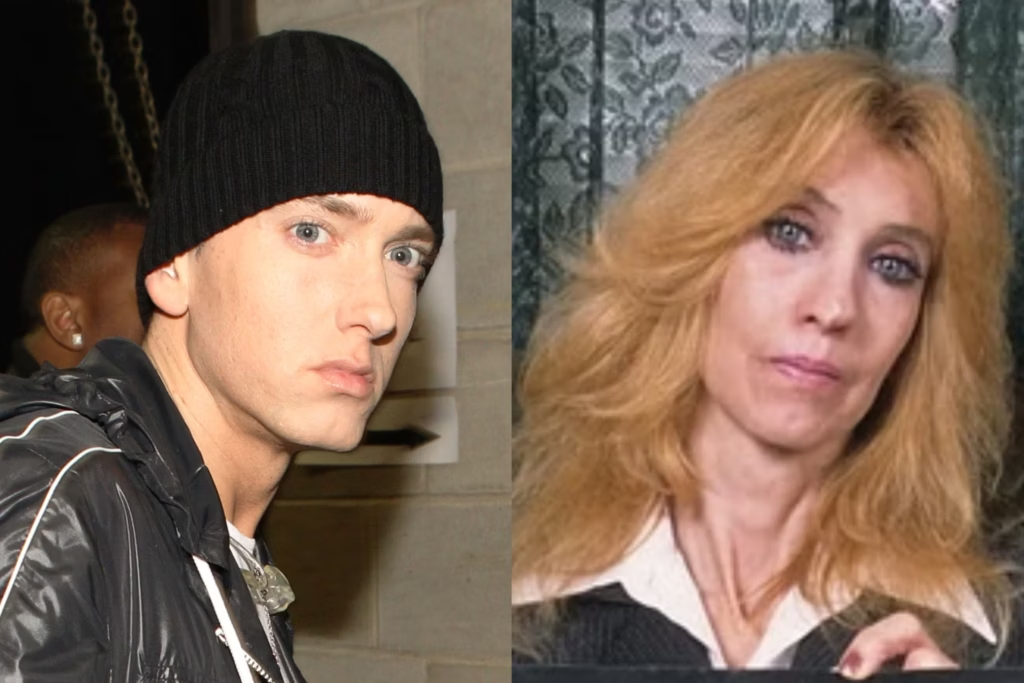
1999: Sued by his mother, Debbie Mathers, for $10 million over defamation claims related to his lyrics. The case was settled for $1,600. She claimed that his remarks about her substance abuse and other behaviors had damaged her reputation.
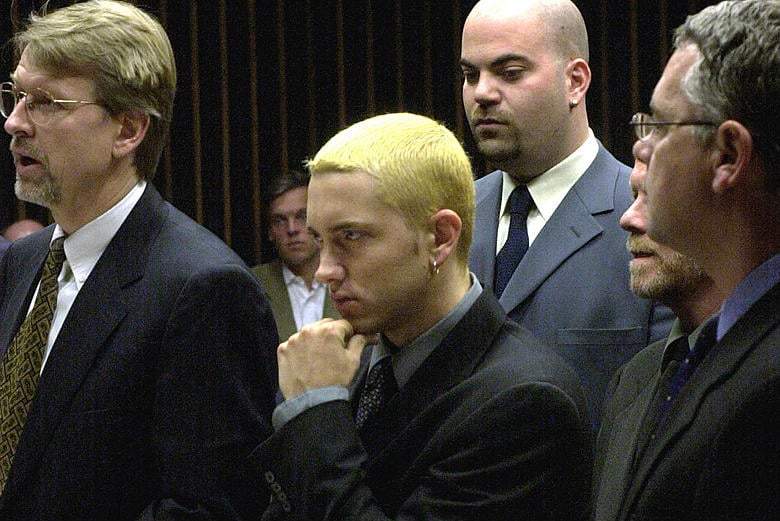
2000: Faced weapons charges after an altercation involving an unloaded gun; received probation.
Eminem was sentenced to one year of probation and community service in Michigan after pleading no contest to charges of carrying a concealed weapon and brandishing a firearm.
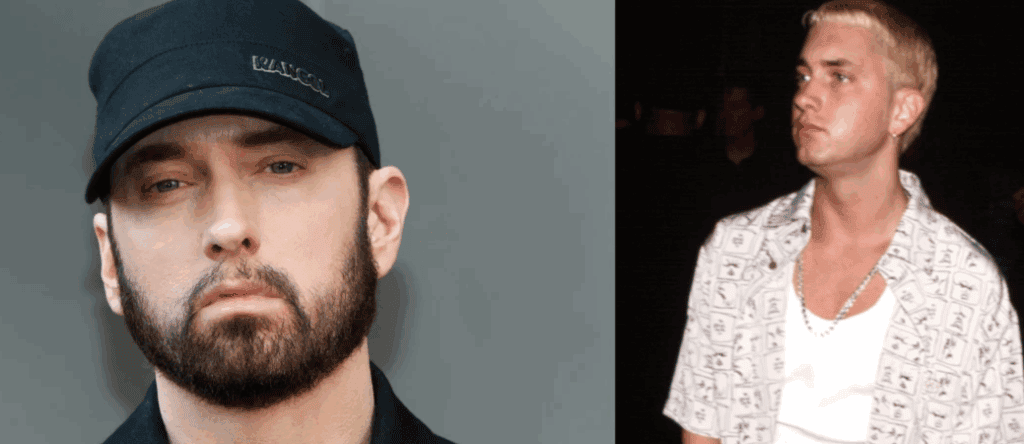
The charges stemmed from a 2023 incident in Royal Oak, where he pulled an unloaded gun on Douglas Dail, an associate of Insane Clown Posse. Judge Denise Langford Morris delivered the sentence, noting significant public interest in the case.
2001: DeAngelo Bailey, a former schoolmate, sued Eminem for $1 million, claiming slander and invasion of privacy over his portrayal in the song “Brain Damage.” Bailey alleged Eminem exaggerated past incidents in his lyrics.
The lawsuit was dismissed in 2003 and upheld in 2005, with the court ruling the lyrics were exaggerated and not meant to be taken as fact.
“Way before my baby daughter Hailey
I was harassed daily by this fat kid named D’Angelo Bailey
An eighth grader who acted obnoxious, ’cause his father boxes
So everyday he’d shove me in the lockers”
II. Intellectual Property & Copyright Cases
2003: Apple Inc. used “Lose Yourself” in an iTunes commercial without authorization, leading to a lawsuit that was settled out of court.
Apple signed a contract with Aftermath Entertainment, believing it included Eminem’s digital sales rights. However, Eminem’s publisher, Eight Mile Style, argued a separate deal was needed for digital sales, which was never made. Eight Mile Style sought $2.58 million from Apple for Eminem’s music sales and $14 million in damages. Apple revealed it paid Aftermath 70 cents and Eight Mile Style 9.1 cents per download.
The dispute ended with an out-of-court settlement, underscoring the legal complexities Apple faced as it expanded into the digital music industry.
2005: Sued by French jazz pianist Jacques Loussier for alleged sampling without permission in “Kill You.” The case was settled.
III. Recent Legal Developments (2023–2025)
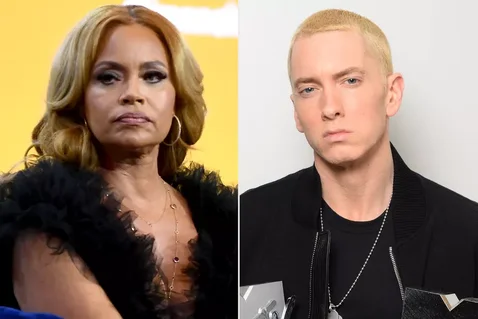
2023: Eminem filed a trademark lawsuit against Gizelle Bryant and Robyn Dixon over their podcast “Reasonably Shady,” citing infringement on his “Shady” brand.
Eminem filed the lawsuit against “Real Housewives of Potomac” stars over their “Reasonably Shady” podcast and merchandise trademark, arguing it would infringe on his established “Slim Shady” and “Shady” trademarks and cause consumer confusion.
Bryant and Dixon denied any infringement, seeking a deposition with Eminem. However, the U.S. Patent and Trademark Office Board sided with Eminem, ruling that deposing his manager, Paul Rosenberg, was sufficient for information gathering.
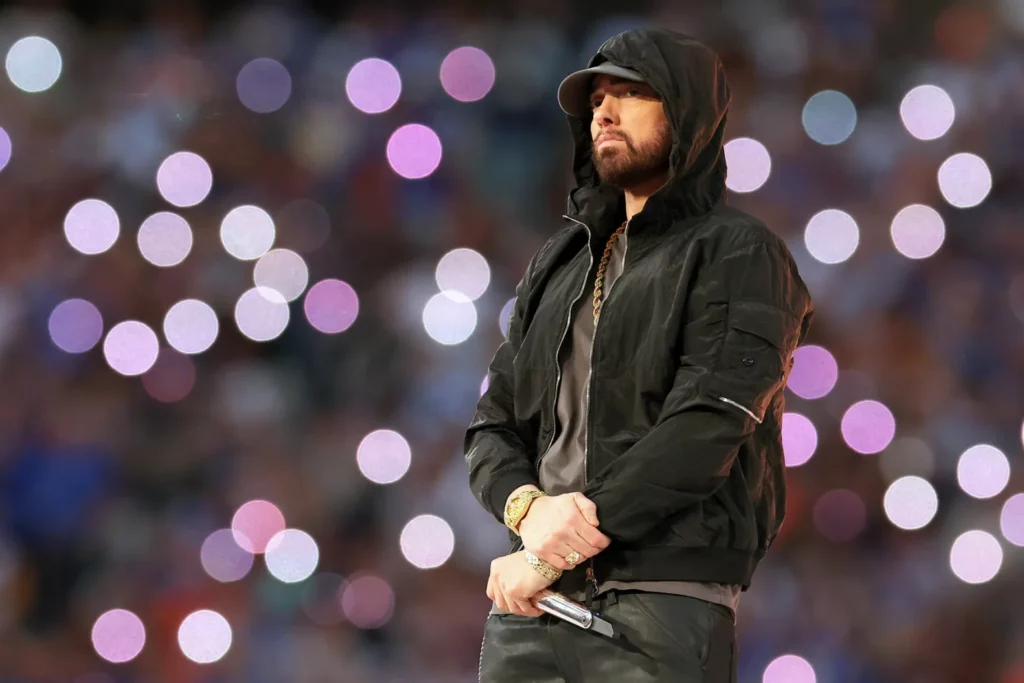
2024: Lost a five-year legal battle against Spotify regarding unauthorized streaming of his music. Eminem’s publishing company, Eight Mile Style, sued Spotify in 2019, alleging that the streaming service didn’t have the proper licenses to stream over 240 of Eminem’s songs. Spotify ultimately won the case, with a judge finding that while Spotify didn’t have the required licenses, it wasn’t liable for copyright infringement due to a legal loophole.
The judge also determined that Kobalt Music Group, which manages a portion of Eight Mile Style’s music rights, would likely be responsible for legal fees.

2025: Eight Mile Style, Eminem’s publisher, dropped a lawsuit against LaFontaine Ford over the unauthorized use of “Lose Yourself” in a commercial after the dealership removed the content and terminated the responsible third-party vendor.
2025: Former employee Joseph Strange was charged with selling over 25 unreleased Eminem tracks online, facing up to 15 years in prison.
Strange was a former Eminem studio engineer, was charged with criminal copyright infringement and interstate transportation of stolen goods after leaking and selling over 25 unreleased Eminem tracks online.
Strange, who worked for Eminem from 2007 to 2021, sold the music—recorded between 1999 and 2018—for about $50,000 in Bitcoin to fans. The FBI traced the leaks back to Strange, discovering hard drives and lyric sheets at his home. If convicted, he faces up to 15 years in prison and significant fines.
Music copyright – any copyright issues – have been front and center in litigation among music talent, including superstars like Taylor Swift who has helped re-write copyright laws about music issues such as that faced by Eninem.
So many mistakes in this article. Awful.
What are the mistakes?
The New Zealand suit had NOTHING to do with the Apple Suit for a start.